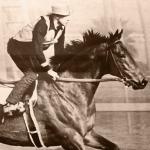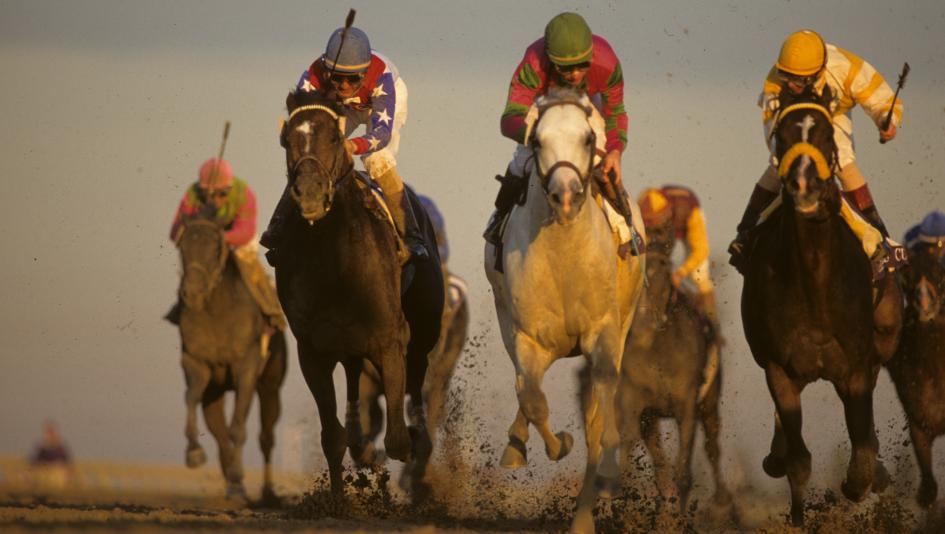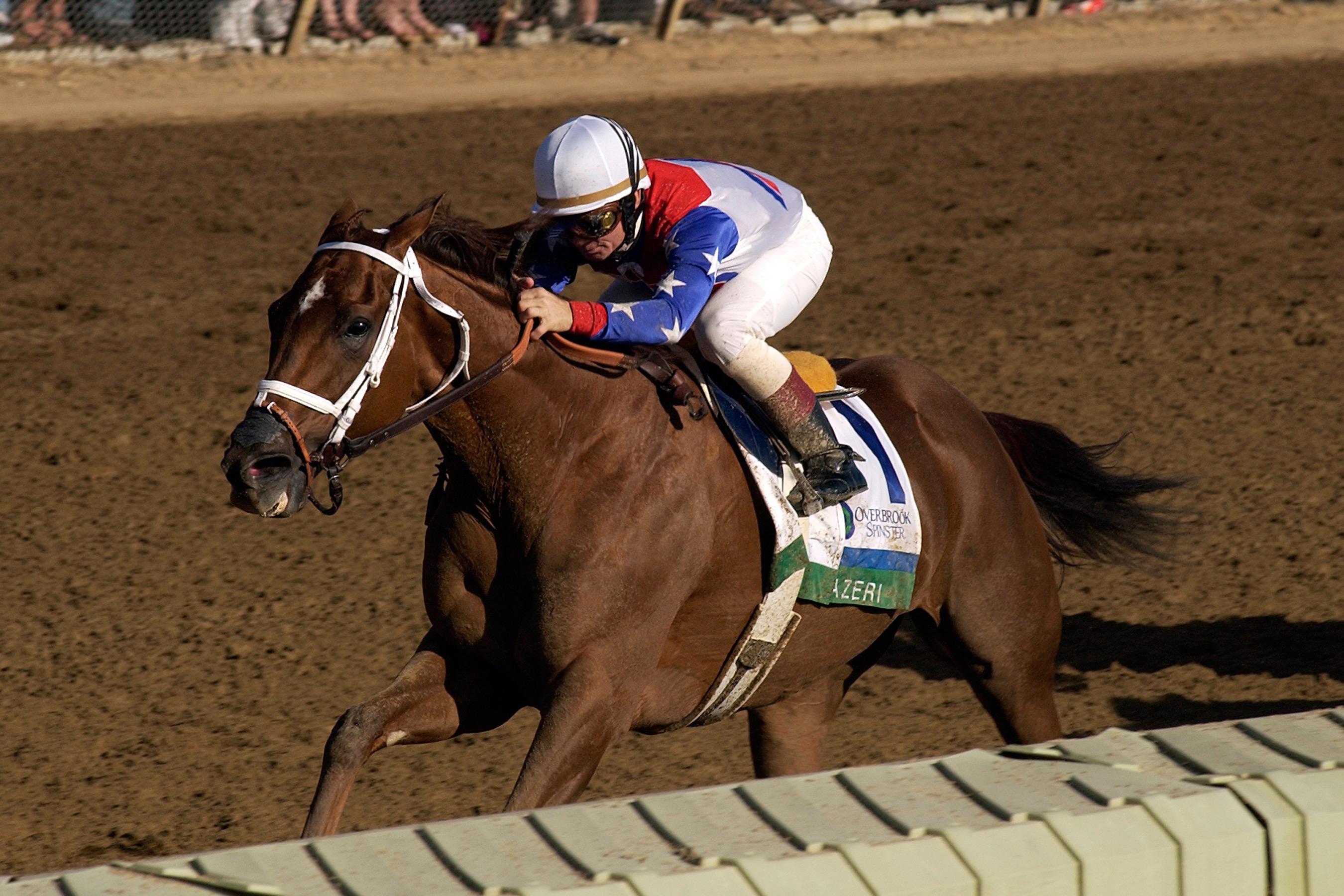
Richard Mandella: A Lifelong Horseman Who Crafted a Hall of Fame Career

The Breeders’ Cup Classic is often thought of as the All-Star race for American horse racing, and for good reason. With its massive purse and enormous prestige, it’s designed to bring together the top horses at the end of each season.
Over its 37-year history, the Classic has been thought of as the final arbiter of who will be crowned Horse of the Year at the Eclipse Awards a few months later. How often has that proven the case? Here, we’ll take a look back at every Horse of the Year since 1984, the first year the Classic was run, and look at how much that’s year’s Classic impacted the Horse of the Year race.
THIRTEEN HORSE OF THE YEAR WINNERS WON THE BREEDERS’ CUP CLASSIC: FERDINAND, 1987; ALYSHEBA, 1988; SUNDAY SILENCE, 1989; BLACK TIE AFFAIR, 1991; A.P. INDY, 1992; CIGAR, 1995; TIZNOW, 2000; GHOSTZAPPER, 2004; SAINT LIAM, 2005; INVASOR, 2006; CURLIN, 2007; AMERICAN PHAROAH, 2015; AND GUN RUNNER, 2017
Winning the Classic is the most common path to Horse of the Year glory, although it’s by no means automatic. Only 36.1% of the 36 Breeders’ Cup Classic winners have gone on to win the Horse of the Year.

With few exceptions, however, a Classic win was needed to seal these horses’ candidacy. Only Cigar, in 1995, and American Pharoah, in 2015, could properly have their Classics described as coronations.
Still, all of the 13 listed above were great horses in position to win a year-end title heading into the Breeders’ Cup. They averaged 4.38 stakes wins on the year going into November and all of them won at least three stakes before the Breeders’ Cup. Seven of them went off as the favorite, and three more were the second favorite. Tiznow, at 9.20-1 in 2000, is the biggest longshot to win the Classic and earn Horse of the Year honors. He won three other graded stakes that year, and took advantage of disappointing performances other Horse of the Year contenders to capture the title.
For most of the Breeders’ Cup’s early history, the Classic was the decisive race for year-end honors. From 1987 to 1992, five of the six Classic winners went on to capture Horse of the Year. As the years have gone on, however, it’s become much less common. Of the 27 Classic winners since 1992 — not counting Authentic in 2020, since Horse of the Year has not yet been crowned — only eight won Horse of the Year. As noted above, two of them, Cigar and American Pharoah, had such dominant campaigns, they would’ve won the award no matter what happened at the Breeders’ Cup.
After the initial sparkle of the Classic wore off, Eclipse voters have begun to look elsewhere for their Horses of the Year. They’ve found them in several other different places.
SEVEN HORSE OF THE YEAR WINNERS LOST IN THE BREEDERS’ CUP CLASSIC: CIGAR, 1996; SKIP AWAY, 1998; CURLIN, 2008; ZENYATTA, 2010; HAVRE DE GRACE, 2011; CALIFORNIA CHROME, 2014; AND CALIFORNIA CHROME, 2016
It was once almost unheard of for a Classic also-ran to win Horse of the Year, but it’s become pretty common in recent years. In fact, since 2007, more Horse of the Year winners have lost the Classic than won it.

With the exception of California Chrome in 2014, all of these horses were established veterans going into their championship season. All except California Chrome in 2014 and Havre de Grace had either won Horse of the Year or another Eclipse Award in the years prior. They also had strong seasons heading into the Classic, with at least five stakes wins each with the exception of Curlin, who had four Group/Grade 1 wins. Voters decided to overlook their Classic defeats and present them with the year-end hardware.
As noted above, Havre de Grace and California Chrome are outliers in the group. Havre de Grace won three Grade 1s in 2011, including a win against males in the Woodward Stakes. She was not the favorite in the Classic that year, going off as the 4.10-1 second choice. Despite her fourth-place finish, she won Horse of the Year with 82% of the vote, with her Woodward win likely carrying most of the weight.
California Chrome was a popular winner of the Kentucky Derby and the Preakness in 2014, and went off as the 4.40-1 co-second choice in the Classic. He lost a three-horse photo to fellow 3-year-old Bayern and longshot Toast of New York. Despite Bayern’s win, the voters felt the Derby and Preakness wins carried the day, and California Chrome won 54.3% of the vote.
SEVEN HORSE OF THE YEAR WINNERS WON A DIFFERENT BREEDERS’ CUP RACE: LADY’S SECRET, 1986; KOTASHAAN, 1993; FAVORITE TRICK, 1997; AZERI, 2002; WISE DAN, 2012; WISE DAN, 2013; AND BRICKS AND MORTAR, 2019
Of these seven, Lady’s Secret and Azeri won the Breeders’ Cup Distaff, Kotashaan and Bricks and Mortar won the Breeders’ Cup Turf, Wise Dan won the Breeders’ Cup Mile both years, and Favorite Trick won the Breeders’ Cup Juvenile.

Usually, it takes a special combination of a dominant horse and a Classic upset for a horse to win a different Breeders’ Cup race, and still win Horse of the Year.
Lady’s Secret dominated the Distaff division in 1986, with seven Grade 1 wins before the Breeders’ Cup, including a win against males in the Whitney Handicap. However, she didn’t clinch Horse of the Year until Classic favorites Turkoman and Precisionist lost later that day. Kotashaan had a similarly strong year on grass in 1993, but it took the defeat of favored Bertrando in the Classic for the Horse of the Year race to lean his way.
Favorite Trick is one of two 2-year-olds to win Horse of the Year since the Eclipse Awards were instituted in 1971; Secretariat in 1972 was the other. He was a perfect 8-for-8 in 1997, including seven stakes wins. Although favored Skip Away crushed the field in the Classic, the voters still gave the nod to the 2-year-old.
Azeri was dominant in 2002, with four Grade 1s to her credit going into the Distaff. She crushed the field by five lengths as the 9-5 favorite. When top 3-year-olds War Emblem and Medaglia d’Oro lost the Classic, that sealed the deal for Azeri.
In 2012, Wise Dan won Horse of the Year on the strength of five graded stakes wins, inclduing capping off his season with a Mile victory. With Fort Larned pulling off a 9.40-1 upset in the Classic, and no other dominant winner on Breeders’ Cup day, Wise Dan took home the award. If anything, he was more dominant in 2013, with six stakes wins and four grade 1s total, including a repeat win in the Mile. However, he was a nose away from not winning Horse of the Year. If Will Take Charge had prevailed over Mucho Macho Man in the Classic, he very likely would’ve won the award with wins in the Travers Stakes, Pennsylvania Derby, and Clark Handicap also on his resume.
Bricks and Mortar capped off a 6-for-6 year with a win as the even-money favorite in the 2019 Turf. In a wide-open Horse of the Year race, Bricks and Mortar was considered the heavy favorite for the award if he won. That proved correct, as he won with 85% of the vote.
NINE HORSE OF THE YEAR WINNERS DID NOT COMPETE IN THE BREEDERS’ CUP: JOHN HENRY, 1984; SPEND A BUCK, 1985; CRIMINAL TYPE, 1990; HOLY BULL, 1994; CHARISMATIC, 1999; POINT GIVEN, 2001; MINESHAFT, 2003; RACHEL ALEXANDRA, 2009; AND JUSTIFY, 2018
Winning the Classic may not be a Horse of the Year requirement, but participating in the Breeders’ Cup certainly appears to be one. In the past 17 years, only the great filly Rachel Alexandra and Triple Crown winner Justify skirted the Breeders’ Cup and still took home Horse of the Year. Even then, both won the award by relatively slim margins, with 56% and 76.7% of the vote, respectively.
In many of these years, it once again took a combination of a special horse and a Classic upset to give the Breeders’ Cup bypassers the year-end championship. All nine horses listed above won at least four Grade 1s in their championship seasons, and competed in years with a median Classic win mutuel of $16.80. Only two of those Classics saw a winning favorite: Zenyatta in 2009 and Accelerate in 2018. As noted above, both Classic winners made the voting somewhat close but could not close the gap enough to win Horse of the Year.
As seen here, the Breeders’ Cup Classic rarely affirms a Horse of the Year champion. A win in the Classic is by no means an automatic bid for a championship honor, especially in recent times. Eclipse voters take the Classic result into account, and sometimes a Classic defeat will sink a horse’s Horse of the Year case. However, it is not used as a means to an end; a horse must have a strong resume all year long to pick up year-end hardware.